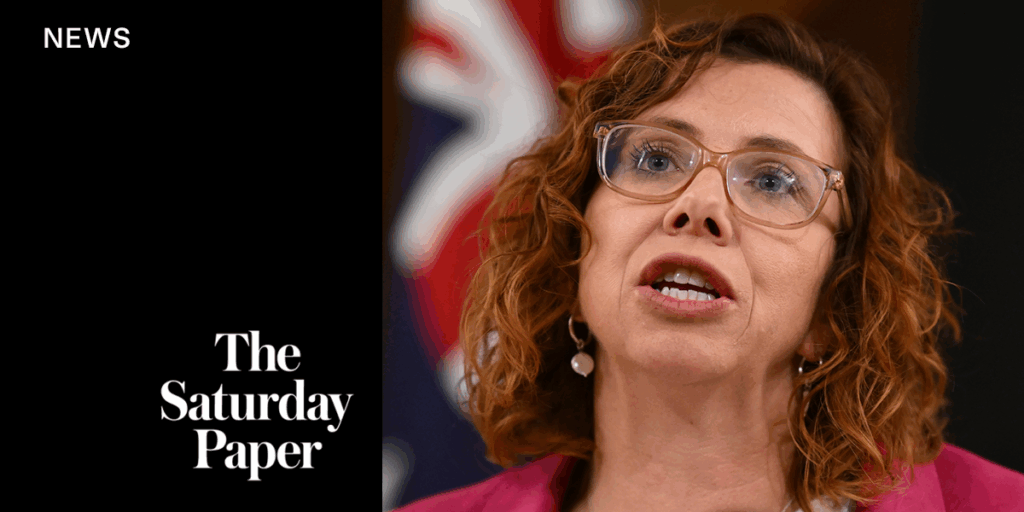
Australia’s $6 billion outsourced employment services system is teetering on the brink of collapse due to longstanding policy, leadership, and technology failures. Documents obtained by The Saturday Paper reveal that these issues were flagged years ago. Senior officials at the Department of Employment and Workplace Relations (DEWR) and ministers were first alerted to these flaws when the Coalition introduced the Targeted Compliance Framework (TCF) in 2018.
Evidence is mounting of coercion and subterfuge among private contractors who profit by compelling welfare recipients into mutual obligation requirements. A report commissioned from Deloitte last year, which the federal government withheld until late Thursday, highlights significant concerns. The consultancy could not assure the quality of the IT system underpinning the TCF, warning that it exposes individuals to unjust and excessive processes.
Systemic Flaws and Legal Concerns
The Deloitte review found no clear link between the law and the system’s operations, identifying this disconnect as a root cause affecting the TCF’s integrity and effectiveness.
“The legal and factual basis for compliance action, particularly when initiated and administered by the IT system, cannot be readily documented or evidenced,” Deloitte stated. “Decisions affecting individuals’ rights, including the withholding of income support, cannot be readily explained, justified or audited.”
The report further criticized the TCF’s punitive approach, which lacks procedural protections for vulnerable participants.
Earlier this month, the Commonwealth Ombudsman released a critical report on DEWR’s administration of the TCF. It revealed that the department failed to update its processes following a law change in April 2022, which introduced more discretion for the secretary in deciding payment cancellations for mutual obligation failures.
Impact on Welfare Recipients
Despite the law change, DEWR did not update its automated compliance system, resulting in 964 unlawful payment cancellations and 45 terminations.
“It is unclear whether DEWR should have acted to pause cancellations in September 2023 when it first became aware of the risk,” Commonwealth Ombudsman Iain Anderson wrote. “DEWR chose to continue the status quo, passing the risk of consequences to job seekers.”
Welfare rights groups, including the Antipoverty Centre and Economic Justice Australia, have long documented systemic abuses within the employment services sector. Private providers often issue breaches for alleged non-compliance, with jobseekers penalized for not attending appointments or failing to meet mutual obligations. The government funds these practices, despite their inherent flaws.
Government Response and Future Implications
Despite the growing evidence of systemic issues, DEWR Secretary Natalie James and Minister Amanda Rishworth have not paused welfare payment suspensions. Rishworth commented, “I am reassured that the Department of Employment and Workplace Relations has accepted all seven of the recommendations in the [Ombudsman’s] report and will work with Services Australia to implement them.”
Advocacy groups have expressed concerns that stopping payment suspensions could threaten the financial viability of the employment services sector. Antipoverty Centre spokesperson Jay Coonan emphasized the harm caused by compulsory activities, stating,
“Welfare recipients have been documenting the extreme harm caused by compulsory activities for years.”
Freedom of information documents reveal ongoing errors in the payment suspension system. Between 2018-19 and 2022-23, there were 2,687 instances of unjustified mutual obligation failures. In the year to March 2025, there were over two million payment suspensions, with private providers often initiating these actions.
Calls for Reform and Accountability
Commonwealth Ombudsman Iain Anderson has expanded his investigation to scrutinize the system and government oversight of private providers. Deloitte’s report highlights the need for urgent reforms to ensure legal alignment, fairness, and responsiveness within the TCF.
Greens spokesperson for social services, Senator Penny Allman-Payne, criticized the government’s handling of the situation, stating,
“If Labor continues to allow welfare payment suspensions now, it shows they don’t really care about what happens to people on welfare, and they’ve learned nothing from robodebt.”
The future of Australia’s welfare system remains uncertain as calls for accountability and reform grow louder. The government’s response to these systemic failures will be crucial in determining the welfare system’s integrity and the well-being of its recipients.







